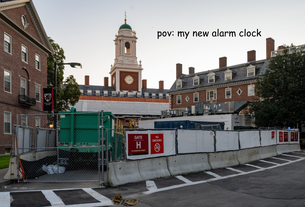“I really had no idea how deep the hatred was—how thorough-going the segregation and the racial prejudice and the oppression—how complete that was, until I saw with my own eyes and was a victim of it,” recalled Perdew, who said he was considered a traitor to his race by many whites in the South.
‘IT WAS MY FIGHT’
Working in Albany, Georgia and later Americus, Perdew underwent considerable harassment from the state police, who followed him, interrogated those he talked to, and looked for grounds on which to arrest him.
“When I was driving, I had to be careful to obey every single stop sign,” Perdew said. “I had to give hand signals when I turned.”
Perdew and the other SNCC workers were finally arrested in Americus, where they held a meeting in a black church. Upon exiting, the activists found that law enforcement had surrounded the building.
“They had baseball bats, blackjacks, riot guns, and they were ready to beat heads, which they did,” Perdew said.
Perdew spent the subsequent three months in a jail cell with fellow activist Ralph W. Allen. Contact with their lawyers was minimal, and Perdew said he was genuinely fearful that a death penalty sentence was awaiting him.
“I remember one point early on in the three-month stay, I realized that the four walls were the physical limits of my world for who knew how long—and who knew what would be waiting for us at the end,” Perdew said. “So, for a long time, I avoided touching the walls and the door.”
Despite all that he had suffered, upon release, Perdew chose to remain in Americus for another year and continue SNCC’s work there. Perdew saw his decision to stay as a political statement—he was showing the community the determination, strength, and perseverance of the civil rights movement.
“[In jail] I had a lot of time to think about why I was there, why in the heck I had come to Georgia, what was going on, what I wanted to do about it,” Perdew recalled. “And I realized it was my fight, not just somebody else’s fight.”
‘THE WHOLE MOOD...CHANGED’
Perdew worked for SNCC in Georgia for three years, before returning to Harvard to complete his degree.
In the intervening years, he married fellow SNCC activist Amanda Bowens, a black woman from Americus. The ceremony took place in Perdew’s home state of Colorado, instead of Georgia, where interracial marriage was illegal.
To support his young family, Perdew returned to Harvard in 1966 to finish his degree. In line with national political trends, the University to which Perdew returned in 1966 was much more engaged with the civil rights movement than the University he left in 1963.


